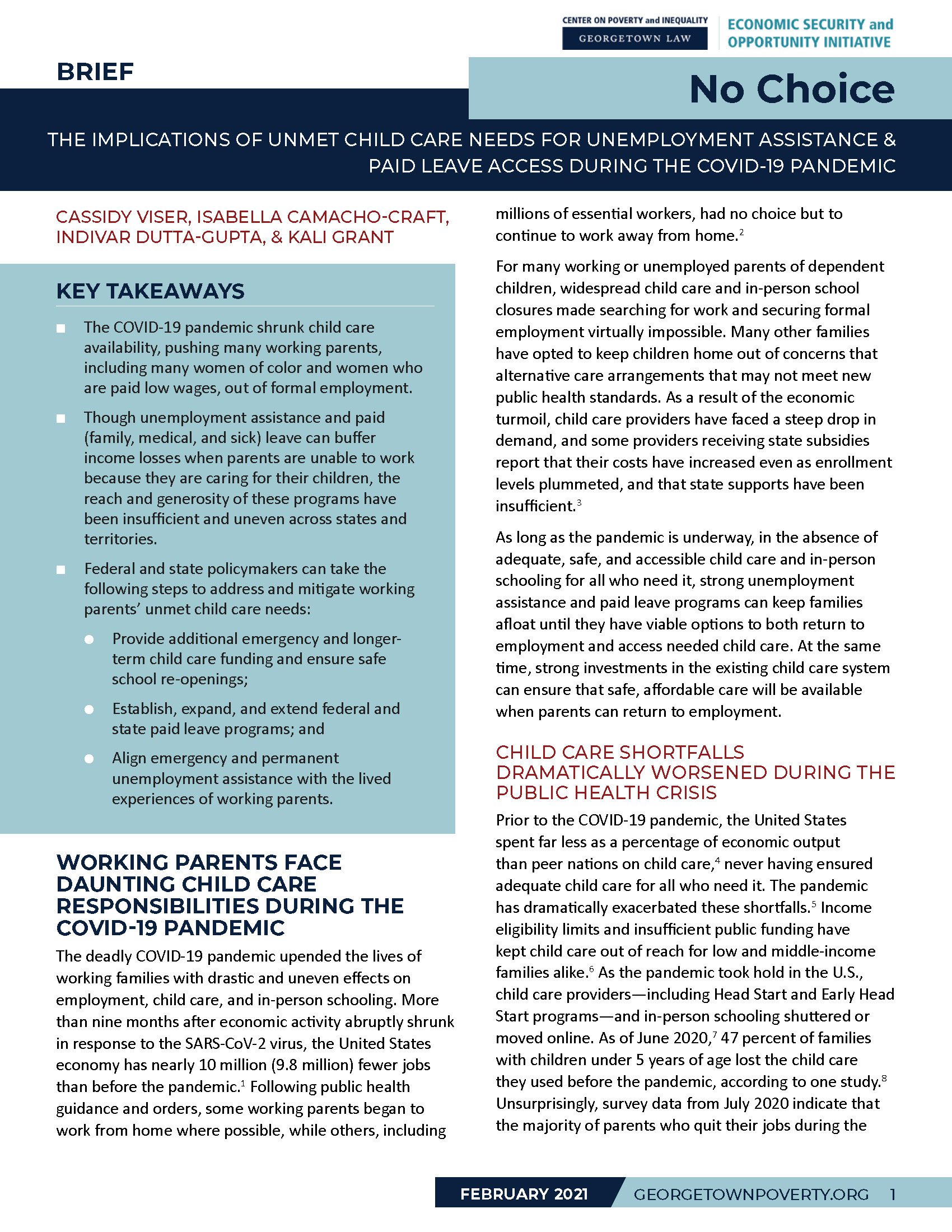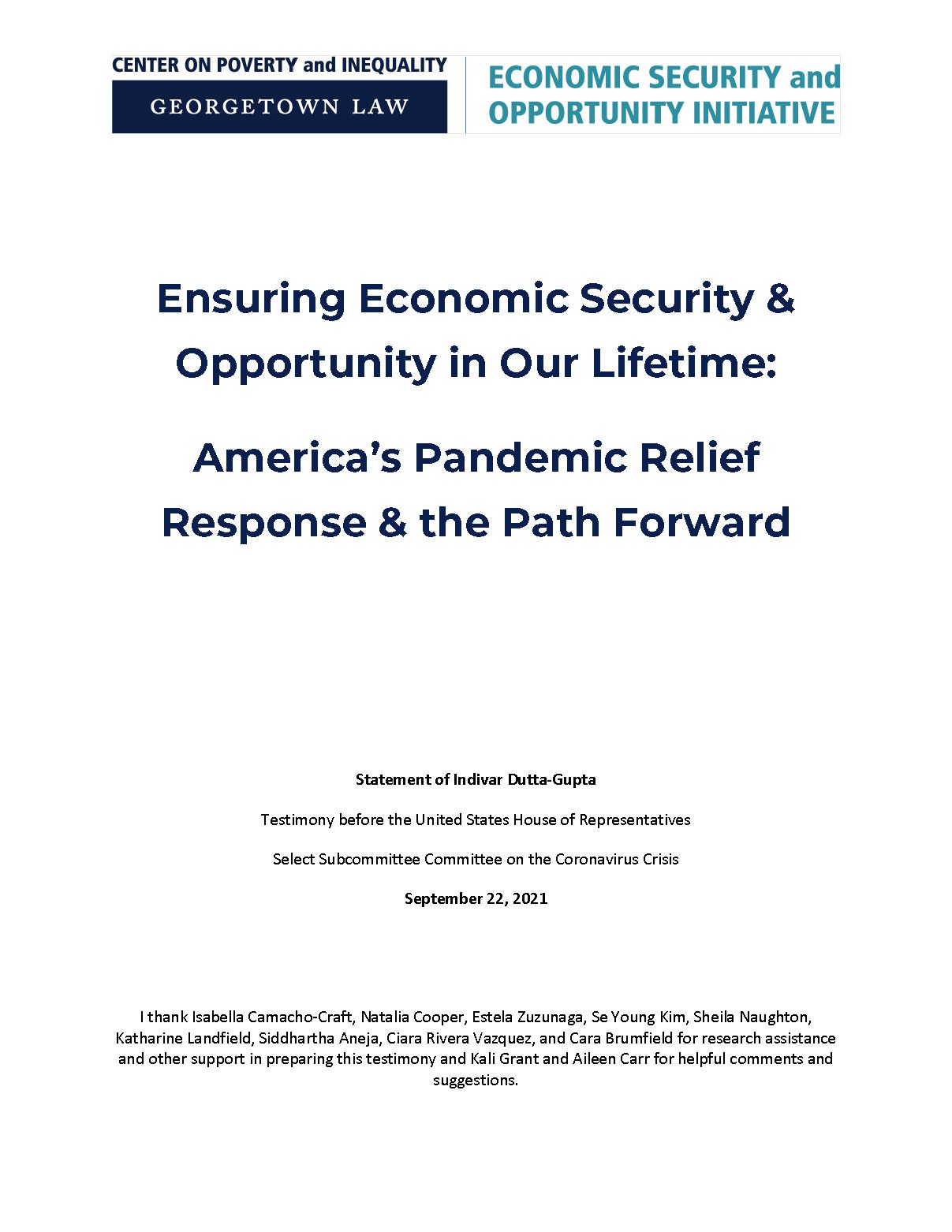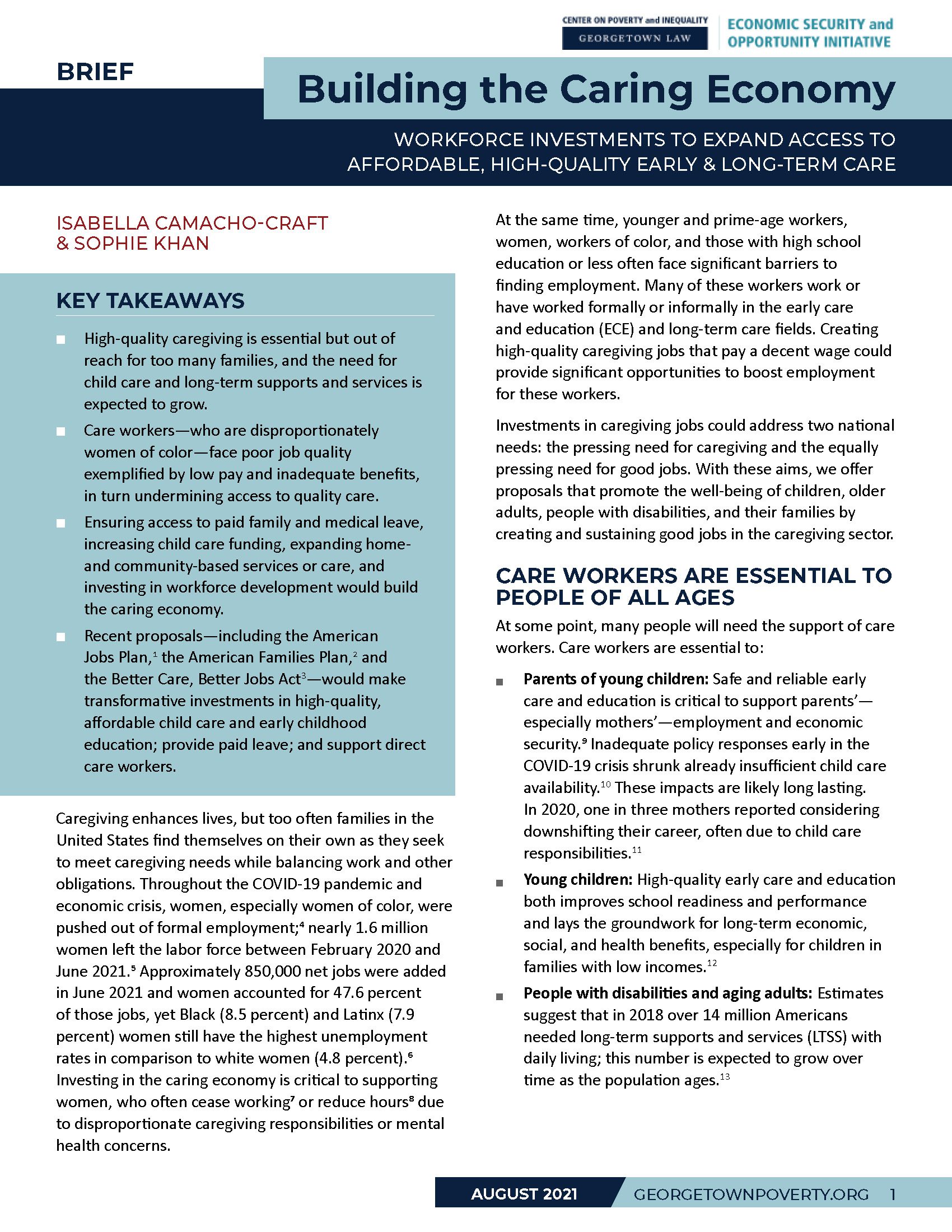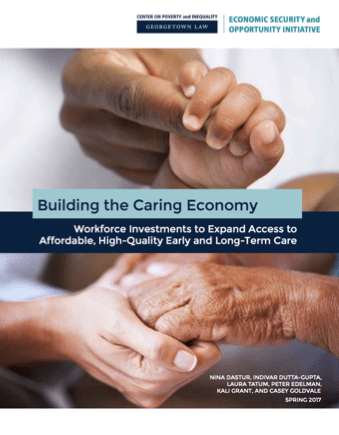CAREGIVING
No Choice: The Implications of Unmet Child Care Needs For Unemployment Assistance & Paid Leave Access During The COVID-19 Pandemic
The COVID-19 crisis has exposed the clear need for child care, paid leave, and unemployment assistance, but many state and federal unemployment assistance and paid leave programs fail to account for the child care needs of working families. For many parents of dependent children, widespread closure of child care and in-person school made searching for work and securing and retaining formal employment nearly impossible. This brief describes how unmet child care needs intersect with and can be mitigated by state and federal unemployment assistance and paid leave programs, and provides policy recommendations to address the care crisis in the short-run and beyond. An accompanying workbook chronicles and analyzes state-by-state policies on the availability of wage replacements for workers without child care.
The table lists policies on the availability of unemployment assistance and paid leave by state, including D.C. and territories, including definitions of school “closures” for regular and pandemic unemployment assistance eligibility, work search requirements, and working documentation of state paid leave programs.
Cassidy Viser, Isabella Camacho-Craft, Indi Dutta-Gupta & Kali Grant
Ensuring Economic Security & Opportunity in Our Lifetime: America’s Pandemic Relief Response & the Path Forward
In 2020, federal policymakers took extraordinary measures to help millions of families avoid poverty and material hardship during the COVID-19 crisis. These temporary federal relief efforts—especially those boosting household incomes and ensuring people’s access to essential services—“played a central role in stabilizing our families and our nation’s economy, while pushing back on deep racial and gender inequity,” according to GCPI Co-Executive Director Indi Dutta-Gupta’s testimony before the United States House of Representatives Select Subcommittee Committee on the Coronavirus Crisis. Dutta-Gupta also argued that continuing to provide needed support to families would address pre-existing inequities and the weaknesses of social protection programs. Policies in “Build Back Better” proposals—with some crucial additions—would provide transformational investments to protect families and our economy against future threats, meet our national caregiving and job needs, and reduce poverty, hardship, and inequality for generations to come.
Building the Caring Economy: Workforce Investments to Expand Access to Affordable, High-Quality Early & Long-Term Care
High-quality caregiving, including child care and long-term services and supports, is essential but out of reach for too many families. At the same time, care workers—who are disproportionately women of color—face poor job quality, low pay, and inadequate benefits, which undermines access to quality care. This brief offers recommendations for caregiving investments that promote the well-being of children, older adults, people with disabilities, and their families by creating and sustaining good jobs in the caregiving sector.
America Must Build a Caregiving Infrastructure to Help Our Families
Executive Director Indivar Dutta-Gupta and Sarita Gupta (Jobs with Justice) make the case for investing in creating new jobs through a national caregiving infrastructure plan.
Building the Caring Economy
Building the country’s caregiving infrastructure would simultaneously address two national needs: the need for care and the equally pressing need for good jobs.
Building the Caring Economy: Workforce Investments to Expand Access to Affordable, High-Quality and Long-Term Care
This report proposes caregiving jobs investments to address two national needs: the pressing need for caregiving; and the equally pressing need for good jobs. With these aims, we offer proposals that promote the wellbeing of children, older adults, people with disabilities, and their families by creating and sustaining good jobs in the caregiving sector.
Nina Dastur, Indivar Dutta-Gupta, Laura Tatum, Peter Edelman, Kali Grant, & Casey Goldvale




